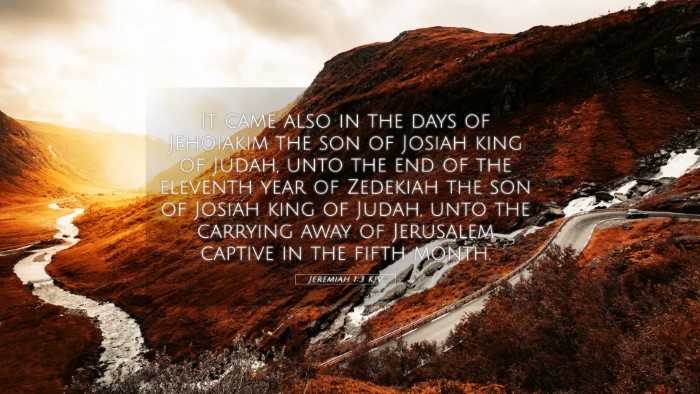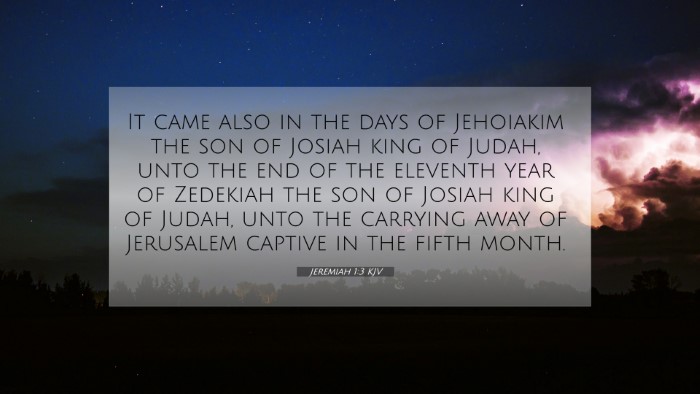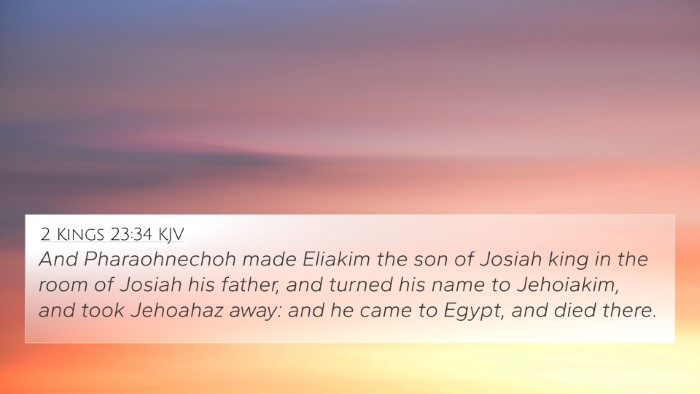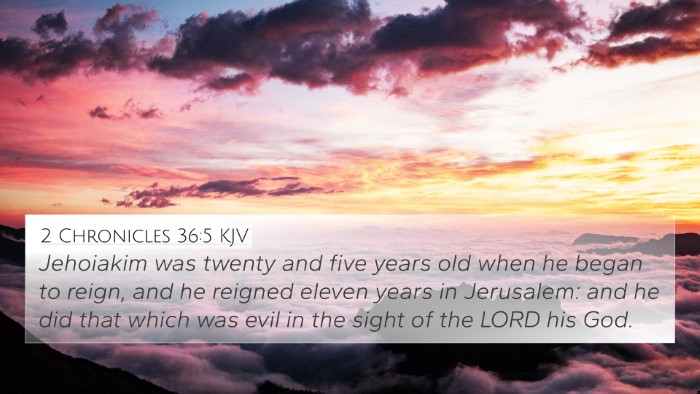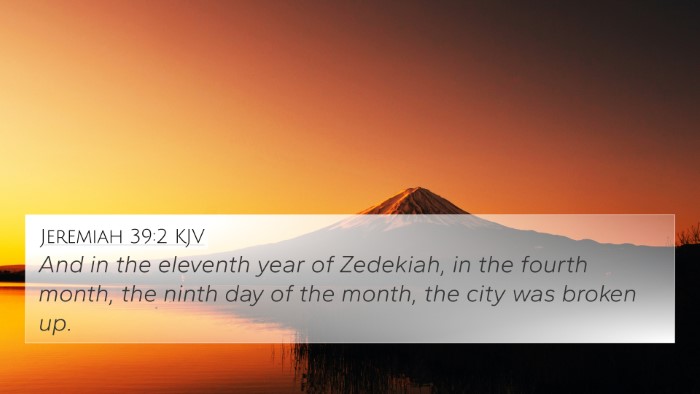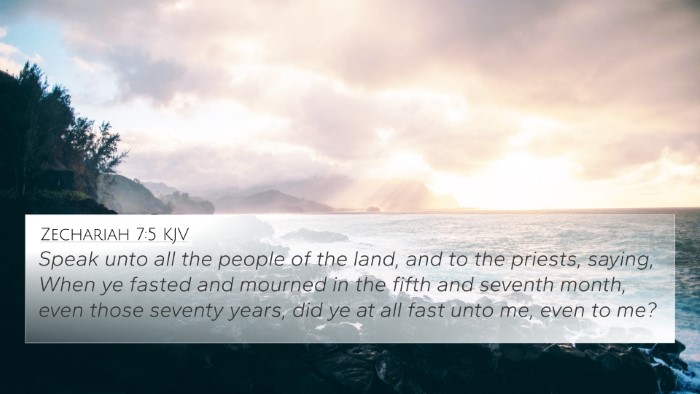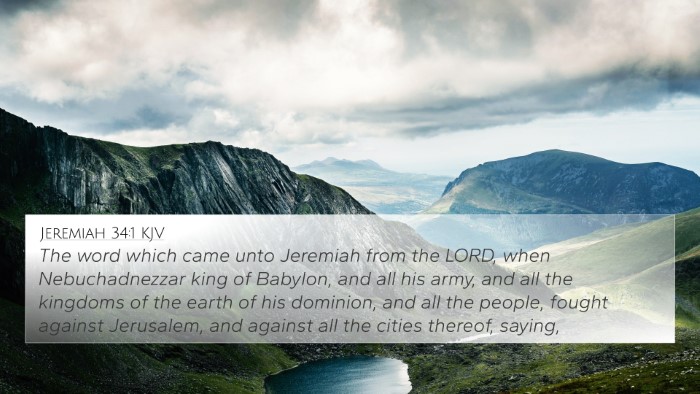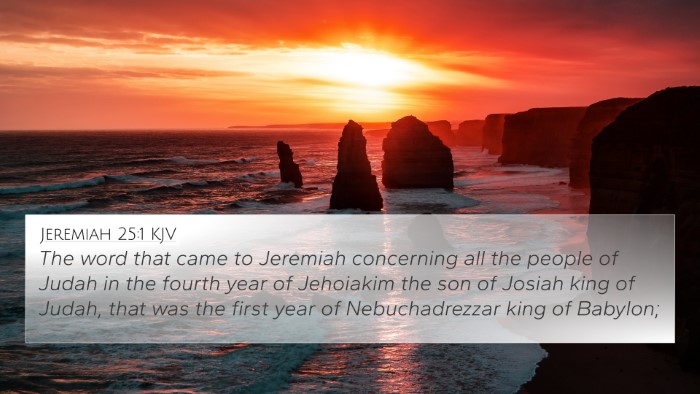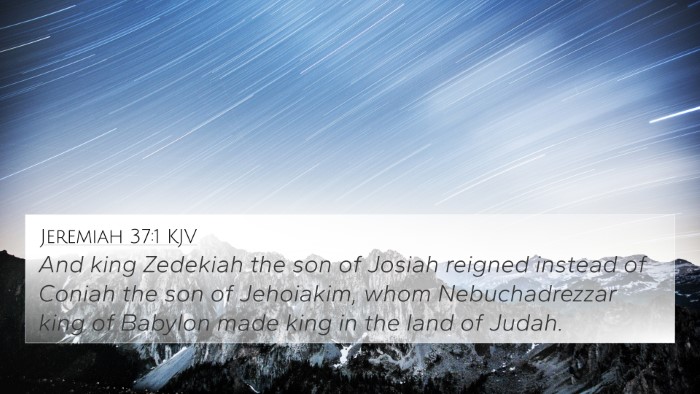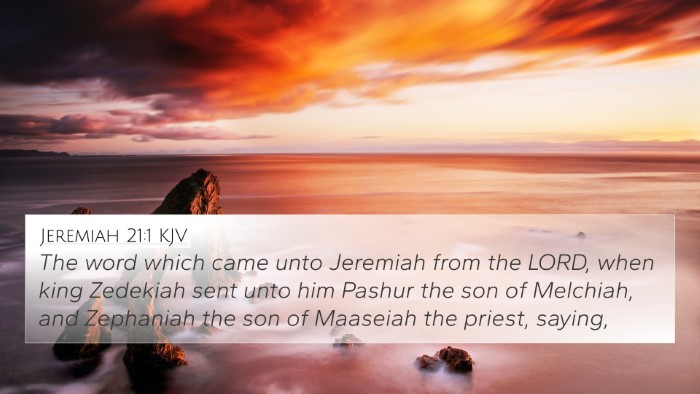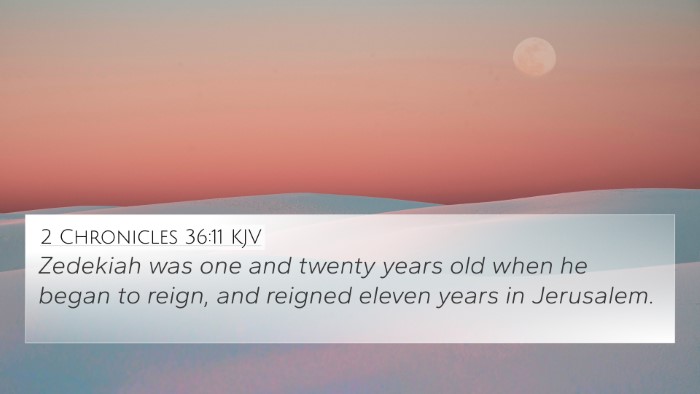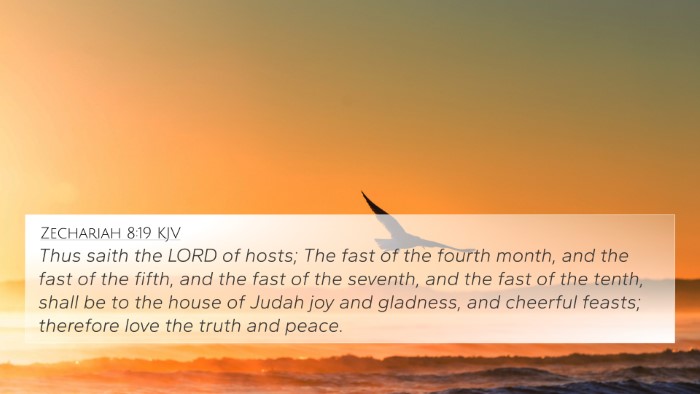Understanding Jeremiah 1:3
This verse states: "And it came to pass the third year of the reign of Jehoiakim the son of Josiah king of Judah, that the word of the Lord came unto Jeremiah from the Lord, saying," (Jeremiah 1:3, KJV). In this key passage, we see the initiation of Jeremiah's prophetic mission, marking a significant moment in the history of Israel's relationship with God.
Contextual Background
At the time of this calling, Jehoiakim was king, and the nation was in a tumultuous state, facing impending judgment and the challenge of false prophets. Jeremiah's role was to deliver messages directly from God, which were often difficult and harsh, reflecting the people's disobedience and the need for repentance.
Insights from Public Domain Commentaries
Matthew Henry's Commentary
Matthew Henry emphasizes the sovereignty of God in calling prophets. He notes that God's choosing of Jeremiah was not based on the prophet’s qualifications or personal strengths, but rather God's divine purpose. Jeremiah was ordained even before his birth, which signifies that God’s plan often precedes our understanding.
Albert Barnes' Notes
Albert Barnes highlights the significance of the timing of God's call. The reference to the "third year of the reign of Jehoiakim" indicates a specific historical context. Barnes also remarks on the phrase "the word of the Lord," noting the direct communication from God as a crucial element that legitimizes Jeremiah’s prophetic authority.
Adam Clarke's Commentary
Adam Clarke explores the implications of divine calling. He points out the word "came" indicating God's direct involvement in human affairs, contrasting the passive nature of man in receiving such divine communication. Clarke provides depth by explaining how the prophetic vocation includes both privilege and burden, revealing the seriousness of Jeremiah's mission to communicate God’s displeasure toward the state of Judah.
Cross-References
To further understand Jeremiah 1:3, we can explore various Bible cross-references that relate to the theme of divine calling and prophetic missions:
- Genesis 25:23 - God’s declaration about Jacob and Esau reflects personal destiny.
- Exodus 3:4 - The calling of Moses signifies God's ability to choose unlikely leaders for His purpose.
- Isaiah 6:8 - Isaiah’s willing response to God’s call illustrates a common prophetic experience.
- Jeremiah 1:5 - God reveals that He knew Jeremiah before birth, establishing a theme of preordained purpose.
- Luke 1:76 - The prophetic mission of John the Baptist as a forerunner connects with the tradition of prophetic call.
- Romans 1:1 - Paul identifies himself as called to be an apostle, paralleling Jeremiah's divine appointment.
- Acts 13:2 - The Holy Spirit sets apart Barnabas and Saul for their ministry, reflecting God's active role in calling.
Thematic Connections
This verse and its accompanying commentaries illustrate important themes in Scripture, including:
- Divine Sovereignty: God's control over human history and individual purposes.
- Prophetic Authority: The legitimacy and power that comes from being called by God.
- God’s Communication: The notion that God communicates directly with chosen individuals.
- Preparation for Judgment: The role of prophets in warning nations of their impending consequences.
Application and Reflection
As modern readers, reflecting on Jeremiah 1:3 encourages us to consider our own callings and the ways God communicates with us. It invites personal examination of how we respond to God's guidance in our lives.
Conclusion
Jeremiah 1:3 is a powerful verse that sets the stage for understanding God’s intentions for His prophets and the people of Israel. By striving to grasp its meanings and connections with other Biblical texts, we enrich our understanding of the continuity and depth of God's message throughout Scripture.

